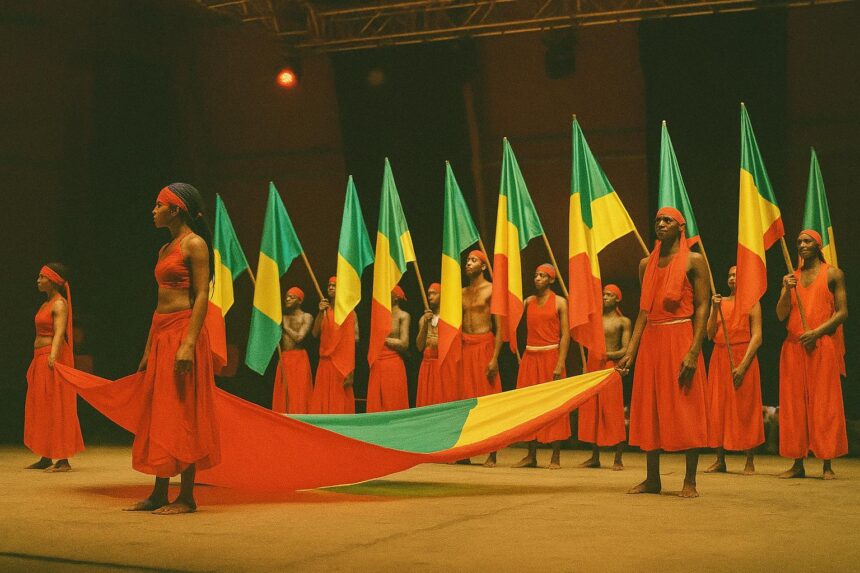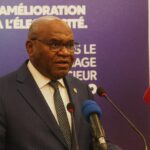A Mandate Forged in Port-Louis
When the Council of Ministers of the then Organisation of African Unity gathered in Port-Louis in 1976, it quietly entrusted Africa’s musical future to a biennial festival. Almost half a century later, that resolution has matured into the Pan-African Music Festival, better known by its French acronym Fespam. Archival minutes confirm that the OAU sought both artistic preservation and continental rapprochement through music, mindful of the fragility of oral traditions under the pressures of globalisation (African Union Archives, 1976).
The Republic of Congo’s eventual selection as host emerged after consultations with Kinshasa and Antananarivo. Diplomatic memos from 1994 recount the spirited debate that preceded the final vote, culminating in Brazzaville’s nomination under the chairmanship of Foreign Minister Benjamin Bounkoulou. President Pascal Lissouba promptly endorsed the decision, signalling a national consensus that crossed partisan lines. That foundational moment still informs the festival’s governance model, now supervised by the Ministry of Culture with strategic guidance from the African Union Commission.
Brazzaville’s Cultural Cartography
Geographically wedged between the Congo River and a swirl of post-colonial narratives, Brazzaville has long functioned as a transit hub for both commerce and ideas. Yet, unlike Ouagadougou with its Fespaco or Rio with its carnival, the city lacked a signature event capable of anchoring its international brand. Fespam filled that lacuna by offering a pan-African stage where Congolese rumba converses with Cape Verdean morna and Sudanese jazz. UNESCO researchers note that such convergences strengthen intangible heritage by creating peer-to-peer validation among artists (UNESCO Creative Economy Report, 2023).
The symbolic timing of the 2025 edition, coinciding with the AU’s Year of Education, allows organisers to foreground pedagogical workshops on sound engineering, intellectual-property management and digital distribution. Partnerships with the African Union’s Centre for Linguistic and Historical Studies in Oral Tradition aim to archive performances in high-definition formats, thus countering the attrition of oral memory.
A Crescendo of Economic Expectations
Congo’s authorities have articulated clear macro-economic objectives for Fespam. The Ministry of Finance anticipates a temporary uptick of 0.4 percentage points in GDP growth for the third quarter of 2025, driven by accommodation, transport and ancillary services. According to the African Development Bank’s latest creative-industries brief, every dollar invested in music festivals across sub-Saharan Africa produces an average multiplier of 1.7 in local expenditure—a ratio Brazzaville hopes to match.
Infrastructure upgrades, including the renovation of the Palais des Congrès hall and the expansion of Maya-Maya International Airport’s arrivals terminal, are already under way. Officials emphasise that contracts were awarded through competitive bidding to ensure fiscal transparency. Major hotel groups report occupancy pre-bookings exceeding 75 percent for the festival window, eclipsing figures recorded during the 2023 Francophonie Games in Kinshasa.
Soft Power and Presidential Vision
President Denis Sassou Nguesso has consistently framed Fespam within Congo’s broader strategy of constructive international engagement. In a March 2024 address to the diplomatic corps, he described the festival as “an orchestra of goodwill where every nation contributes its own tempo toward harmony” (Presidential Press Service, 2024). His administration’s National Development Plan 2022-2026 lists cultural diplomacy as a pillar alongside energy diversification and climate resilience.
Foreign missions in Brazzaville acknowledge the festival’s convening power. The European Union delegation has earmarked funds for an ‘Afro-Euro Symphonic Dialogue’ concert, while the United States embassy is supporting masterclasses on intellectual-property enforcement. Such initiatives subtly reinforce Congo’s role as an honest broker in regional peace efforts, exemplified by its facilitation of talks on the Central African Republic in late 2023.
Social Cohesion in a Post-Conflict Context
The scars of the 1990s conflicts in the Pool region still inform public memory. Cultural anthropologists from the University of Yaoundé argue that communal music-making accelerates reconciliation by fostering inter-ethnic empathy (Yaoundé Journal of Peace Studies, 2021). That insight shapes Fespam’s outreach programmes in which choirs from formerly opposed communities perform together. The Ministry of Youth reports that nearly sixty percent of workshop seats are reserved for participants under thirty, a demographic group that constitutes both the majority of the population and a reservoir of untapped creative capital.
Diasporic engagement adds another layer of cohesion. Delegations from New York, Paris and São Paulo will converge on Brazzaville, underscoring music’s centrifugal pull. The African Union’s Citizens and Diaspora Directorate confirms that Fespam is now the premier cultural event in its engagement calendar, outpacing even the biannual AU-EU cultural dialogue.
From Festival to Policy Instrument
Fespam’s evolution mirrors the African Union’s shift from normative declarations to implementation-driven frameworks. The African Continental Free Trade Area, operational since 2021, offers new vistas for Congolese music exports, and festival organisers are lobbying for expedited customs lanes for instruments and stage equipment under AfCFTA provisions. Concurrently, the Congolese Copyright Office plans to pilot a blockchain-based registry during the festival, providing real-time tracking of performance royalties.
Looking ahead, cultural economists advise sustaining momentum through year-round programming rather than biennial peaks. Talks are under way to establish a permanent School of Pan-African Music in Brazzaville, potentially backed by the African Export-Import Bank’s Creative Africa Nexus initiative. Should financing crystallise, the city could emerge as a continental centre for music education, complementing its established reputations in diplomacy and riverine trade.
Echoes Beyond the Closing Chord
By the time the final encore resonates across the Congo River on 26 July 2025, Brazzaville’s streets will have hosted not only hundreds of performers but also a multilayered dialogue on heritage, economics and geopolitics. If the festival achieves its declared aims—preserving tradition, stimulating growth and nurturing solidarity—it will reaffirm the prescience of that 1976 Port-Louis mandate. More importantly, it will demonstrate how cultural assets can underpin nation-building without compromising the diplomatic equanimity that Congo-Brazzaville has cultivated in recent years.
In a continent seeking integrative narratives, Fespam stands as an emblem of pragmatic idealism: music as a shared language, policy as its amplifier, and Congo as the stage upon which Africa rehearses its future harmonies.





















